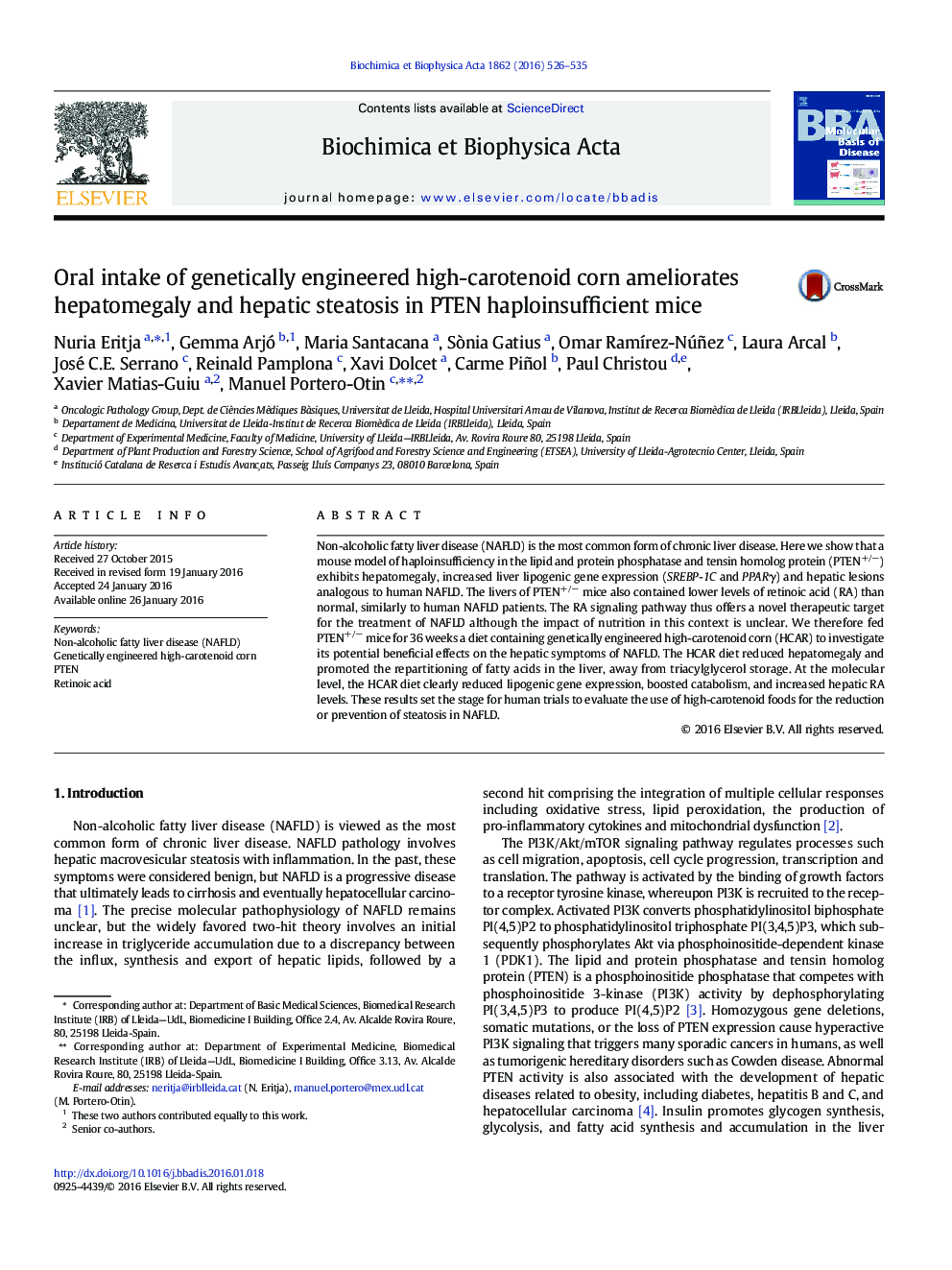| Article ID | Journal | Published Year | Pages | File Type |
|---|---|---|---|---|
| 8259439 | Biochimica et Biophysica Acta (BBA) - Molecular Basis of Disease | 2016 | 10 Pages |
Abstract
Non-alcoholic fatty liver disease (NAFLD) is the most common form of chronic liver disease. Here we show that a mouse model of haploinsufficiency in the lipid and protein phosphatase and tensin homolog protein (PTEN+/â) exhibits hepatomegaly, increased liver lipogenic gene expression (SREBP-1C and PPARγ) and hepatic lesions analogous to human NAFLD. The livers of PTEN+/â mice also contained lower levels of retinoic acid (RA) than normal, similarly to human NAFLD patients. The RA signaling pathway thus offers a novel therapeutic target for the treatment of NAFLD although the impact of nutrition in this context is unclear. We therefore fed PTEN+/â mice for 36 weeks a diet containing genetically engineered high-carotenoid corn (HCAR) to investigate its potential beneficial effects on the hepatic symptoms of NAFLD. The HCAR diet reduced hepatomegaly and promoted the repartitioning of fatty acids in the liver, away from triacylglycerol storage. At the molecular level, the HCAR diet clearly reduced lipogenic gene expression, boosted catabolism, and increased hepatic RA levels. These results set the stage for human trials to evaluate the use of high-carotenoid foods for the reduction or prevention of steatosis in NAFLD.
Related Topics
Life Sciences
Biochemistry, Genetics and Molecular Biology
Ageing
Authors
Nuria Eritja, Gemma Arjó, Maria Santacana, Sònia Gatius, Omar RamÃrez-Núñez, Laura Arcal, José C.E. Serrano, Reinald Pamplona, Xavi Dolcet, Carme Piñol, Paul Christou, Xavier Matias-Guiu, Manuel Portero-Otin,
